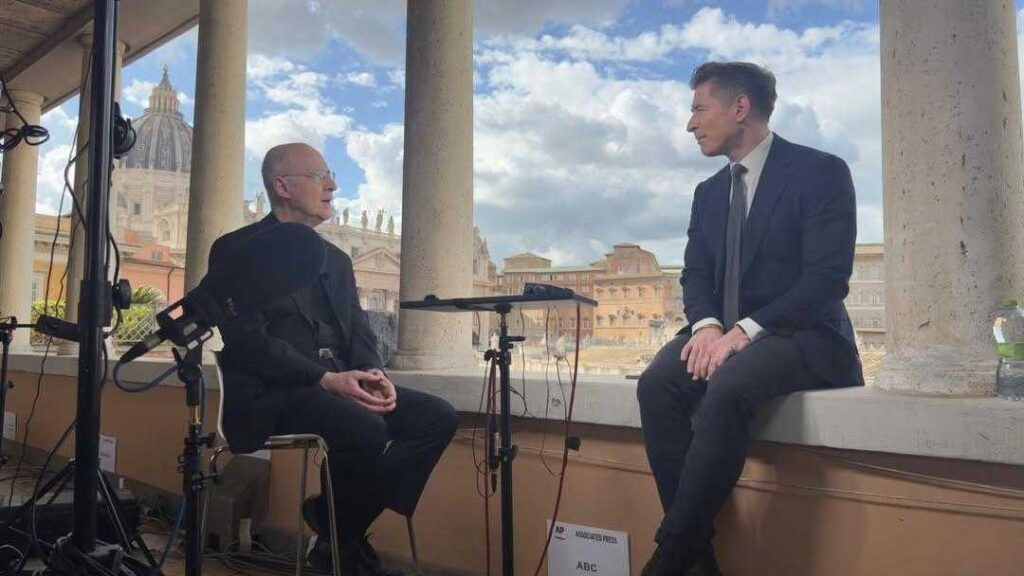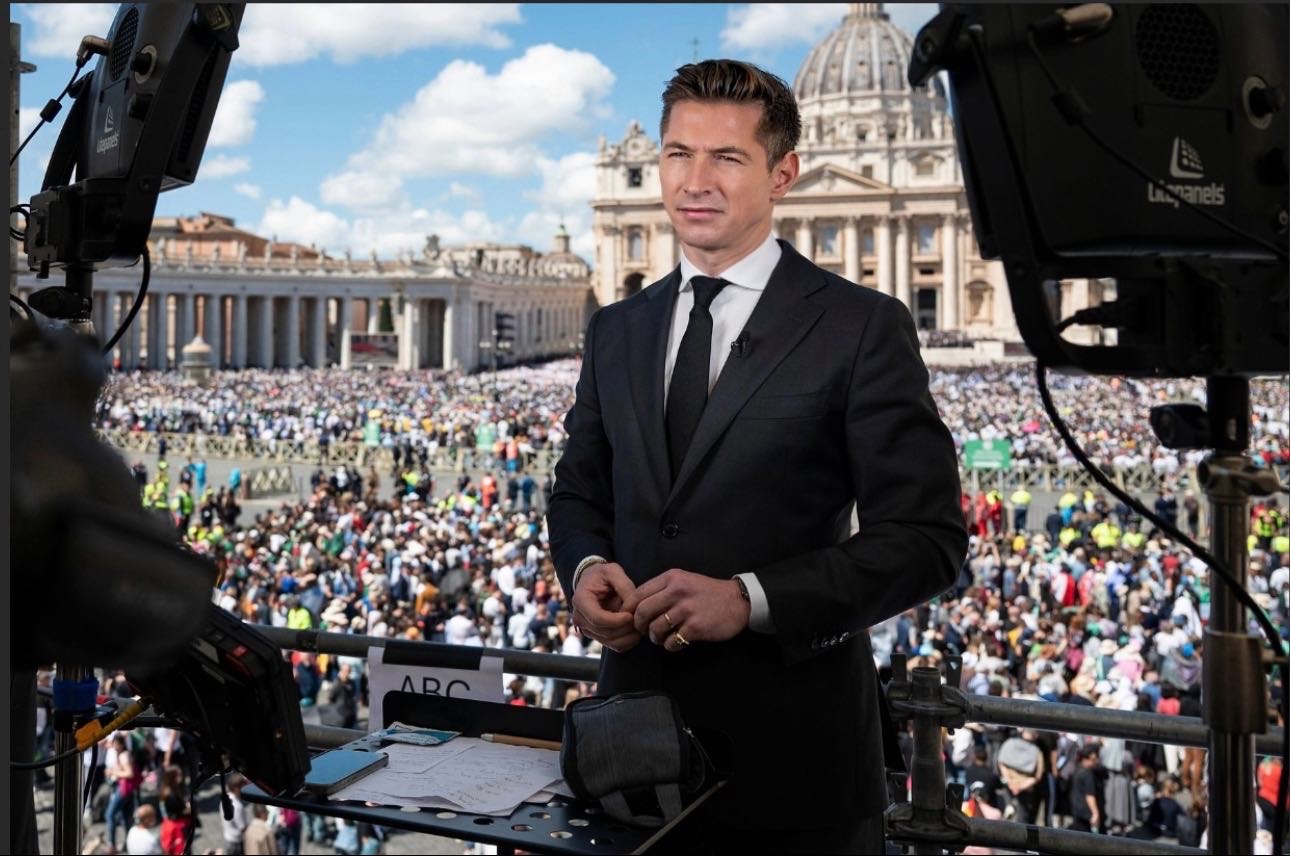My grandmother always wore blue in May, for the Virgin Mary. She was from a different age, from a generation of Catholic Lebanese women for whom faith, family and a certain degree of pride in their appearance, were more important than anything else. I have strong memories of her overpowering smell of rose water eau de toilette, her red lipstick, her thick white hair (which often had a blue rinse through it) and a seeming endless supply of asymmetric silk dresses.
There are still glimmers of this bygone age in Beirut now. They sit in the Christian neighborhoods of Beirut, gossiping in a mix of Arabic and French outside hair salons or over tea in upscale patisseries. Gabrielle—my ‘Grandmaman’—had to leave Lebanon during the civil war, and eventually settled into life in the UK and 50 years of marriage to my Kiwi grandfather, who she’d married in Egypt in 1945. She had her fur coats, her jewelry, her rice recipes and her dresses. But it was her Lebanese-ness she held onto most fiercely her whole life. She lived with us until she died when she was 96, and I was 14. Although we are still not 100 percent sure how old she really was, because she defaced all her official documents to blot out her age! She even took a compass to her marriage certificate. So she may have been 98 or even 100. We’ll never know!
All that is to say, she was the earliest example I had of a person with a strong faith. She never missed Mass on a Sunday, and prayed the rosary most of the rest of the time. Anytime anything was lost, up would go the prayers to St. Anthony. There were a litany of other saints she referenced on a near daily basis. And so, because I loved her so much, it made me want to be Catholic too. That, and honestly because with a Catholic Lebanese grandmother and mother in the house, the other faiths represented in my family never had a look in. My dad came from a mixed family of English Anglicans and Scottish Presbyterians and his brother, my uncle, was a Quaker. They all seemed to personify the quiet, reserved nature of my U.K. family, whereas my mother’s Catholicism had a more overpowering, exotic and all-encompassing quality to it.
When I was 8, I was sent to a Catholic boarding school in the English countryside. English Catholicism seemed to me a little quieter than what I’d experienced. But it felt right, somehow. I felt—culturally at least—that it made sense. I knew why I needed to go to Mass, what to say and when to kneel. I knew what to do before and after confession. I knew the names of the important saints and I knew the Hail Mary. Monastic life—Worth was a monastery school—didn’t seem alien to me. It was all part of the Catholic tradition that just seemed like home. When my dad died, it became the most important place in my life. The teacher who told me my dad was dead, the matron who comforted me, the housemasters who became surrogate parents and the monks who looked out for me over those ten years I was there, all of them were Catholic. My schooldays were some of the best years of my life, and when I think of all the people who formed me, I don’t think their faith was a happy coincidence. It was part of the reason they were all so wonderful.
But as I grew up, and I realized I was gay, my feelings about being Catholic grew more ambivalent. I wanted to be part of the club. I just wasn’t sure I could be. I didn’t come out until I was 24, and even though I retained a good relationship with my school, it just never felt like something I could talk about. Some of my best friends to this day are school friends, but even then, there were never conversations about being gay back then. I just kind of let people know that it wasn’t a secret anymore, and if they wanted to tell other people, they could. I hoped my friends would learn it by osmosis. In the years that followed, I’ve always considered myself culturally Catholic, if that’s a thing. I light candles for my Grandmaman whenever I’m in a church. I do the sign of the cross when I walk in. But it has never gone further than that.
My husband Alex is not religious at all, and it has never really been part of our lives. But when my sister in law got very sick, Alex said he wanted to go into the church opposite the hospital to pray for her. It wasn’t a Catholic church, but it didn’t matter. It was there, and he felt like going. So we did. But it wasn’t a Sunday and the place was all locked up. So I walked around the building until I found a little office. And the vicar was there. With a smile, he let us into the church to sit in silence. We told him about Alex’s sister, and he said he’d pray for her. And by sheer coincidence, he was gay. I bookmarked the church in my mind as a place we might go back to. But didn’t think of it much again. And then Pope Francis died.

I found myself in Vatican City, thinking deeply for the first time about my own faith. And I felt a strange emptiness. I had not realized it at the time, but Pope Francis’ acknowledgement of gay Catholics, and the possibility that our unions might be blessed in a church, had meant a lot to me. Five simple words, “Who am I to judge,” seemed to offer me a chance again. Now he was gone, I was genuinely worried whether the door that had been opened ajar to me, would be closed once more. It was only his absence that made me realize this.
I met James Martin, S.J., on the roof of the St. Augustine seminary in Rome, where our TV coverage was based. Fr. Martin is an ABC papal contributor, and has been an important advocate for LGBTQ Catholics, so I took my chance to speak with him about my own faith. He could sense I wanted to talk. Not that I was having a crisis of faith, more that I could feel something pulling me back into the church for the first time in a very long time. We chatted more and more over the weeks that followed, after Francis’ funeral and into the conclave and the election of Pope Leo. Fr. Martin made me feel the church was there for me in a way no one has ever done. I was so moved by our conversations, I used my few seconds with Pope Leo to tell him, “Fr. Jim says hi.” He smiled; they know each other. I think telling Leo I knew Fr. Martin was my way of feeling like I was Catholic again. I don’t know.
And then, before I left, Fr. Martin told me about a Jesuit church in London I could consider attending, the Church of the Immaculate Conception, known colloquially as Farm Street. I told Alex all this, and his face lit up. He had been going to that exact church while I’d been out of town. A Catholic church just around the corner from our home. I had no idea! He had been going to think about his sister, and about life and his own direction. I immediately text Fr. Martin. Of all the churches in all of London, this was the one Alex had already been visiting. I couldn’t believe it.
‘I hope you see God’s hand in all of this,’ he replied.
Maybe I do.
A version of this essay originally appeared on Mr. Longman’s Substack.




